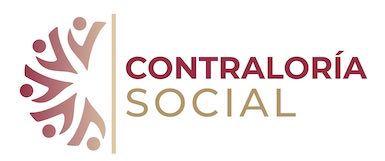Bachelor’s Degree in Economy and Finance
In the private sector, will be able to work in enterprise planning from the conception of the company’s idea and proper financial mechanism of same up to the development and control in the everyday practice. Will also be able to work in private banking and stock market institutions.
You can work in the public sector in the areas of planning, budgeting, financial instruments, comptroller and finance of any organization of this sector.
Also, will be able to develop and assess plans and institutional development programs of same, and pursue the activities of management and control of these. On the other hand, will have the ability to conduct research in their area of specialty or complement the interdisciplinary work in areas that require it, also may exercise teaching activities.
The candidate aspiring to enter the Bachelor’s Degree in Economy and Finance should:
- Be a graduate of a Junior College Education.
- Have completed all the subjects and present the certificate of the corresponding studies.
- Proceed from the Social Science and Mathematics area. .
- Have interest in contributing to regional and national socio-economic development in the areas of economic planning and financial management.
- Keep an open attitude towards interdisciplinary work.
- Have ability to handle mathematics and interest in economic and financial areas.
- Analyze and describe the socio-economic and financial processes and their interaction with the rest of the system.
- Propose and implement alternatives for socio-economic and financial development in the micro and macro levels.
- Encourage interdisciplinary work, since this enriches development proposals.
- Build conceptual and econometric models based on reality, allowing him to use the most appropriate tools for analyzing and solving various economic problems.
- Develop programs of financial instruments that allow different instances an optimum use of resources and maximum development in the medium and long term.
- Use and develop financial instruments that optimize the use of financial resources from the private, public and social sectors.
- Update his knowledge and incorporate new techniques and methods necessary for the proper performance of their duties.
- Present creative and viable solutions to the various problems of their environment solutions.
- Demonstrate honest self-criticism capacity and performance.
- Likewise, the graduate will have a humanistic, scientific and socially responsible attitude.
FIRST SEMESTER
Mathematics.
Text Writing and Reading Comprehension.
Contemporary Social Problems.
Economic history of Mexico.
Introduction to Law Study
Introductory English.
SECOND SEMESTER
Administrative processes.
Statistics I
Mathematics I.
History of Economic Thinking I.
Logic.
Basic English.
THIRD SEMESTER
Statistics II.
Mathematics II.
Macroeconomics I
Microeconomics I.
History of Economic Thinking II.
English Pre-Intermediate.
FOURTH SEMESTER
Instruments and Financial Markets Operations.
Econometrics I
Mathematics III.
Macroeconomics II.
Microeconomics II.
Intermediate English.
FIFTH SEMESTER
Monetary Theory and Financial Markets.
Theory of Public Finance.
Econometrics II.
Macroeconomics III.
Microeconomics III.
International economy.
SIXTH SEMESTER
Formulation and Financial Evaluation of Private Projects.
Public finances.
Regional Economic History.
Microeconomics IV.
Theory of Economic Growth.
Finance Function and Analysis of Financial Statements.
SEVENTH SEMESTER
Financial engineering.
Analysis and Evaluation of Public Policy.
Thematic Seminar.
Analysis of Regional Development.
Corporate Finance.
Optional 1.
EIGHTH SEMESTER
Stock Market and Management of Securities Portfolio.
Formulation and Social Evaluation.
Seminar on Regional Problems.
Research Seminar I
Ethics.
Optional 2.
NINTH SEMESTER
Research Seminar









